Navy SEAL Sean Evangelista’s Transformation from Punk Kid to Mountain Man
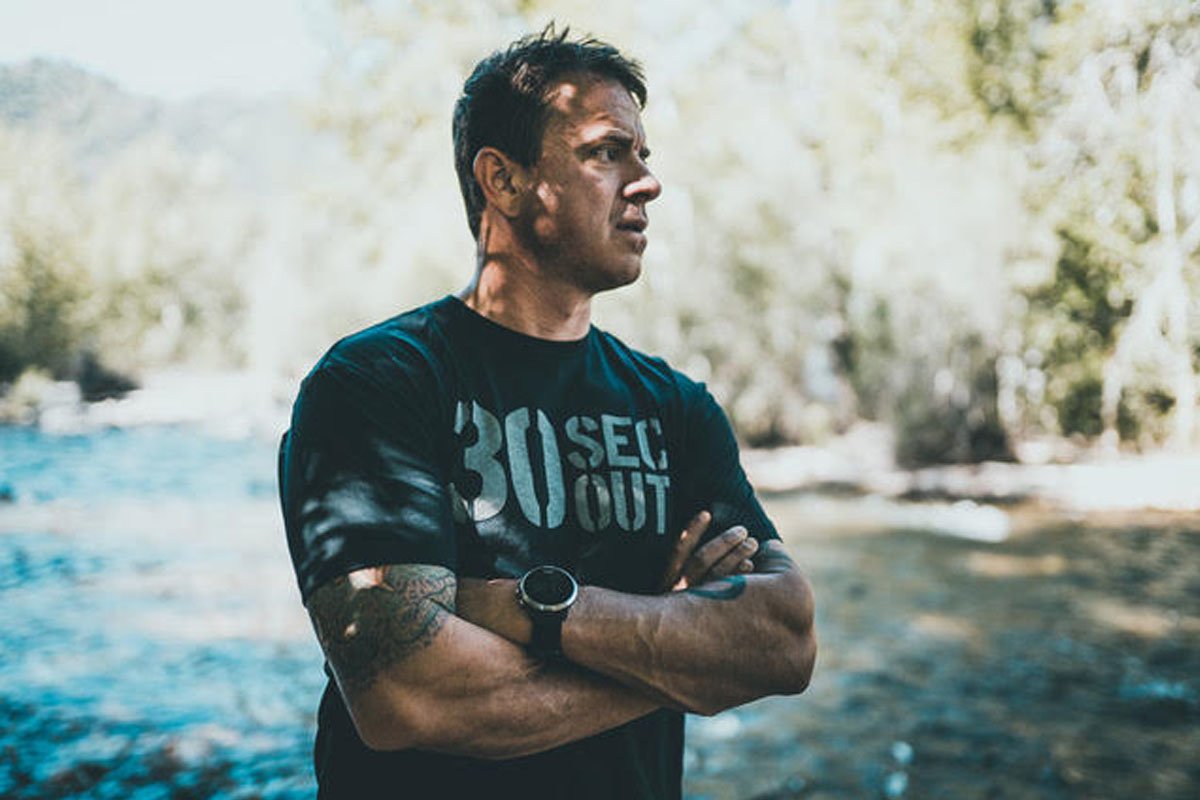
Photo courtesy of Sean Evangelista.
The mountains were calling Sean “Evan” Evangelista, and he went.
His trek to Sun Valley, Idaho, took more than 20 years, and much like summiting an epic peak, the journey brimmed with wins, losses, terror, joy, and exhilaration.
From “Army brat” skater kid to rock climber before it was cool to Navy SEAL to entrepreneur mountain man — and more — Evangelista’s life is one of movement, growth, and transformation.
He’s now CEO of Thirty Seconds Out, the commando-inspired apparel company he started in 2014, and nowadays perfection, he said, is to “wake up and have coffee with my fiancée, then climb and ski a few backcountry lines with some close friends.”
Evangelista said the key to finding happiness and success is “knowing your personality and picking a mission that lines up with your personality.” He always knew he wanted an active, outdoor lifestyle.
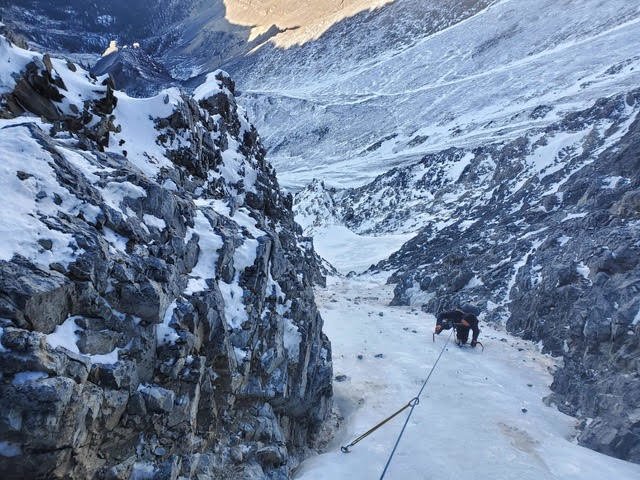
As a military kid growing up in the 1980s and ’90s, his youth unfolded throughout the country — California, Hawaii, Georgia, and Maryland — and he was always searching for the next thrill.
“I was a little skater kid in high school” into hardcore and punk rock music, he said. “I was not your sports jock guy at all.”
He hung out at the 9:30 Club in Washington, DC, and hit pop-up shows around the area. Bad Brains, The Misfits, D.O.A., Murphy’s Law, Rollins Band, H20, and others formed the soundtrack of his youth. Besides skateboarding and music, he found an outlet in rock climbing through a Boy Scouts Explorer program, which grew his interest in special operations and the outdoors.
With a high school record of sketchy grades and troublemaking, Evangelista said people probably didn’t think he’d get too far. He graduated in 1992 and hit a crossroads: join the Navy to try to become a SEAL or go west to ski and snowboard.
“I just wanted to test myself,” he said. So, he attended a mountaineering course in Alaska’s Chugach National Forest for 28 days, and halfway through he decided to enlist when he got home.
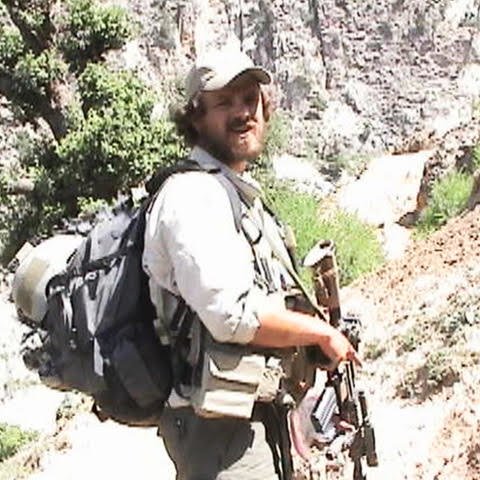
He soon found himself in Basic Underwater Demolition/SEAL (BUD/S) training, and it turns out it was a good fit.
“I really started to feel like I was in the right place,” he said. “There’s a lot of suffering. People are quitting every day. You don’t know what’s going to happen. It was unpredictable. Every day and every night was an adventure. It was hard, but it kind of fulfilled my hyperactive kid sort of thing.”
Evangelista wrote out goals throughout his career. His first goal in the Navy was to “make it through BUD/S in one shot and don’t get rolled back,” he said. He wrote that on a scrap of paper and carried it with him, and it worked.
“I wish I would’ve kept that; I don’t have it anymore,” he said. “I think that was one of those little micro things that just help a little bit.”
Evangelista’s mindset was to just keep going until it didn’t make sense anymore. That point never came, and he graduated first in his class.
He spent his first few years in a unit in Hawaii, diving and working with submarines. These were the pre-9/11, sleepy post-Cold War days, and it was hardly what he’d signed up for.
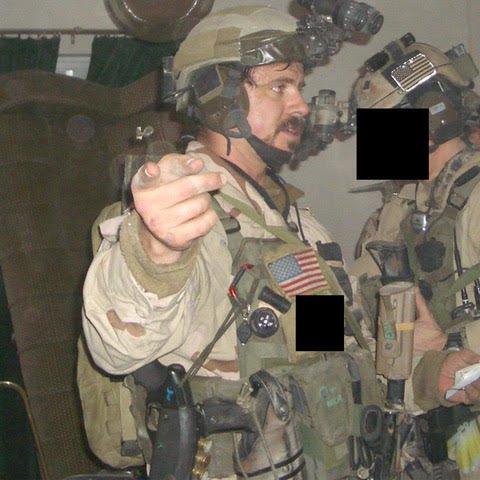
“I wanted to be carrying a gun in the jungle or somewhere doing commando-type stuff,” he said. “Now I feel like I’m being a diver, which is okay, but I didn’t go through all that training to strictly dive.”
Everything changed after Sept. 11, 2001, but his first deployment in the post-9/11 era was to South America, not Afghanistan.
“It’s almost that feeling I would imagine, like you’re injured right before the Super Bowl and then you’re just sitting there with the big puffy jacket on the bench,” he said.
After Hawaii, Evangelista went from SEAL Team 4 to 2, then eventually was selected for service in the Naval Special Warfare Development Group — popularly known as SEAL Team 6 — in 2003, where he stayed for the next decade. He spent time as a sniper, breacher, team leader, and dog handler during his time on the teams. He participated in hundreds of combat missions and worked in countless places including Central and South America, Cambodia, the Horn of Africa, Afghanistan, and Iraq.
He first deployed with SEAL Team 6 in 2004.
“And then the deployments, every six months, started picking up,” he said. “The amount of combat we were seeing slowly started climbing — 2004 and 2005 — it was like a graph, just like a hockey stick, going up, up, up.”
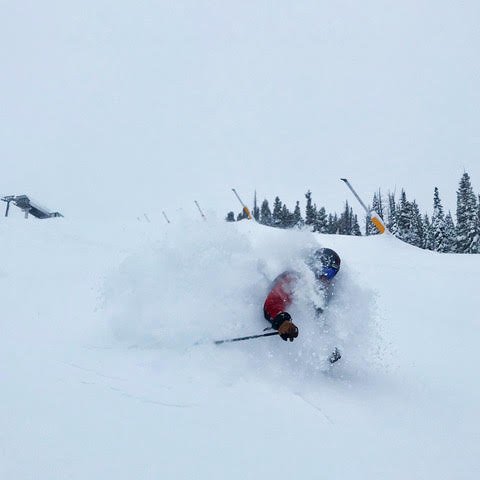
The Aug. 6, 2011 downing of an Army Chinook helicopter — Extortion 17 — in Wardak province, Afghanistan, that killed all 38 on board, including 17 SEALs, was the low point of Evangelista’s career. Many of those killed were friends he’d worked with for close to a decade.
“About one-third of our team was dead in that one helicopter shoot down,” he said. “Some of those guys were like my brothers.”
He was in Jalalabad, and he’d secure-chatted with several of the fallen just hours before the tragedy. He’s grateful to the Army Rangers who secured the crash site and recovered the dead.
“The Rangers went to the site and dealt with all that shit,” he said. “They got a section of the [helicopter’s] rotor and they carried that fucking rotor through bad guy country for miles just to give us something that we could put in our team room as a memorial to those guys.”
That was Evangelista’s 12th and final deployment, and the beginning of the end of his time in the military. Back in Virginia, he found himself at a desk, and “it was hell,” but he knew it was coming.
“The longer you stay in [the military], the desk is hunting for you, and I don’t want anything to do with that,” he said. “I knew being at a desk was a really bad fit for me — I wanted to literally kick doors in and go to war with the boys, and when that time was over, it was time for me to leave and move to the mountains.”
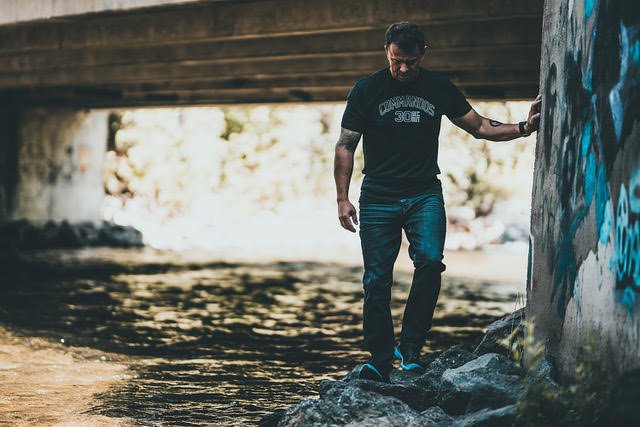
He used the extra time in his staff job to plot his transition from the Navy and move to the mountains.
Overall, he said his military time was “90% awesome and 10% a total nightmare, like many careers out there that have high consequences.” Along the way, he “sustained a couple brain injuries, broke a lot of bones, and got the usual joint problems that guys get doing this kind of work.”
He retired in 2014, and his “first move was to head West and leave that shit behind.” He landed in Sun Valley and worked to find a new balance in life.
He has used Mark Twight’s quote — “If you once did great things, you think you are great. You coast along on dead laurels, lifeless and wasting away” — to guide his transition from the military to the civilian world.
“You need to make conscious decisions to not be in a rut,” Evangelista said.
Staying physically active, spending time outdoors, throttling back drinking, and setting new goals helped him in the transition.
He knew he needed to “stay physically active because your body, to stay healthy, needs endorphins every day,” he said. “You need at least heavy exercise to keep your mind fresh and to keep from kind of going nuts, and the outdoors is the best place I could think of to do that.”
“Planning for a mountain objective feels a lot like getting ready to go into a combat operation. There’s a real risk involved, and it requires our full attention if we want to succeed and come back safely.”
He landed a job working for a tree-cutting company and made a new goal — not only learn to ski but to train up to join the ski patrol.
“Most of the people that are locals in a ski town pretty much rip, and they’re really good to learn from,” he said. Evangelista made the team and worked for the ski patrol for three years. He stopped when he needed more time for his business and other outdoor goals.
“I personally like pursuits that involve real consequences, and the outdoors have all that we can handle in that realm,” he said. “Planning for a mountain objective feels a lot like getting ready to go into a combat operation. There’s a real risk involved, and it requires our full attention if we want to succeed and come back safely. There can be a real feeling of teamwork and unity when your crew is heading into an objective. You feel very alive.”
To figure out future goals and where to spend time, he said he uses a “deathbed” litmus test — basically to attack the things that you’d regret on your deathbed if you don’t accomplish them.
“When I started doing that, I started realizing I had all the superfluous stuff in my life that wasn’t going to help me get to my goals,” Evangelista said. “I had to start kind of trimming the fat.”
Evangelista also spends a lot of time thinking, learning, and creating. He’s always reading, and his favorite book this year is Atomic Habits by James Clear.
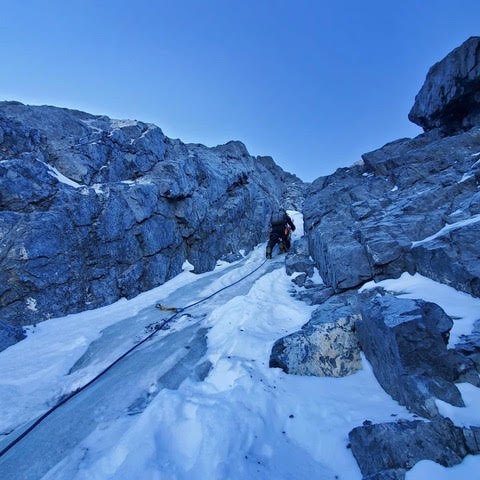
He attributes his interest in lifelong learning to his stepdad, who spent 31 years in the Army as an infantryman — Long Range Reconnaissance Patrols, or LRRP — in the 25th Infantry Division and served in Vietnam. He was of Hawaiian and Filipino descent, said Evangelista, and “he always told me to use my ‘maka,’ which means use your head or mind,” and he “instilled ‘never quit’ into my head all the time.”
Evangelista has always been interested in graphics and art and began creating after the Navy. He soon developed a style that mixed his punk-rock skater kid sensitivities with his military background and his love for the outdoors. Imagine a North Face or Patagonia design with a Thrasher edge and an operator theme, and that’s the type of stuff he creates and sells through Thirty Seconds Out.
“I just make stuff that I think is cool,” he said. “I’m working in contrasts — experimenting with ideas, pop culture, and cross-pollinating that with the military — it’s fun, and people seem to really like it.”
With five employees, Thirty Seconds Out is a small brand that’s completely online and sells direct to consumers. The pandemic hasn’t hurt business, and sales are up about 25% this year.
The business is expanding and developing distribution in Europe. While growth is good, Evangelista said it’s a fine balance.
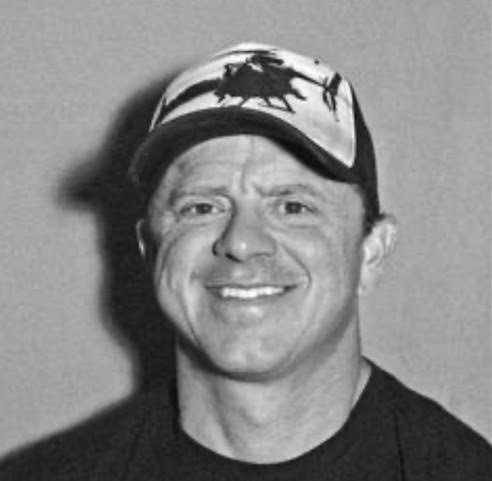
“I want to grow, but I don’t want to lose my life or my mind doing it,” he said. “I’ll work, but my free time is important to me, too — I really like to spend time outdoors.”
The goal, he said, is to “keep strengthening the systems that we have in the business, so that it’s basically a well-oiled machine.”
He sees his military experiences as a gift and seeks to instill some of that knowledge in his products. Evangelista feels success when his products resonate with nonmilitary audiences.
“That’s when I know I’ve won because I’ve been able to cross from being ‘commando guy’ into the civilian world, and they’ve accepted my ideas,” he said.
And while he’s proud of his business, he feels his best out on the slopes, trails, or exposed rock faces.
“It’s out there — in the mountains, forests, and deserts — that a few key things come into play. There’s less noise, giving us more headspace to think clearly,” he said. “It can make our path forward more concrete in the mind. Priorities in our lives rise to the top of our thought process and everything else fades. Stillness, awe, humility, and gratitude are what I feel when out there.”
In 1873, 147 years ago, the great American naturalist and father of the national parks, John Muir, wrote, “The mountains are calling and I must go and I will work on while I can, studying incessantly.”
These words resonate with many, especially Sean “Evan” Evangelista, who’s up in Sun Valley right now, hard at work finding peace in ideas, art, and, of course, shredding trails.
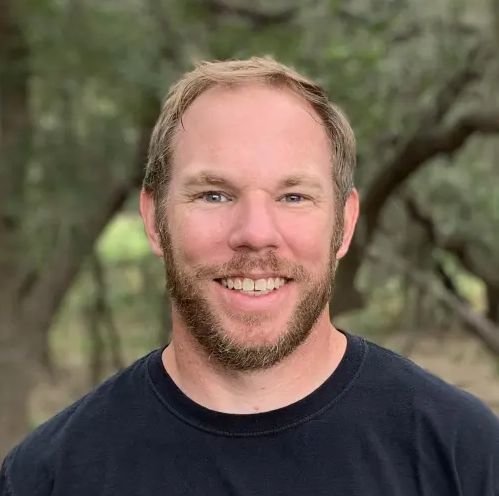
Brandon Lingle is an associate contributing editor for Coffee or Die Magazine. As a journalist and writer, his work has appeared in The American Scholar, The New York Times (At War), Guernica, Narrative, and more. He served as a U.S. Air Force public affairs officer and Air Force Academy English professor. Brandon is a veteran of the Iraq and Afghanistan wars; he currently lives in Texas and edits War, Literature & the Arts.
BRCC and Bad Moon Print Press team up for an exclusive, limited-edition T-shirt design!
BRCC partners with Team Room Design for an exclusive T-shirt release!
Thirty Seconds Out has partnered with BRCC for an exclusive shirt design invoking the God of Winter.
Lucas O'Hara of Grizzly Forge has teamed up with BRCC for a badass, exclusive Shirt Club T-shirt design featuring his most popular knife and tiomahawk.
Coffee or Die sits down with one of the graphic designers behind Black Rifle Coffee's signature look and vibe.
Biden will award the Medal of Honor to a Vietnam War Army helicopter pilot who risked his life to save a reconnaissance team from almost certain death.
Ever wonder how much Jack Mandaville would f*ck sh*t up if he went back in time? The American Revolution didn't even see him coming.
A nearly 200-year-old West Point time capsule that at first appeared to yield little more than dust contains hidden treasure, the US Military Academy said.












